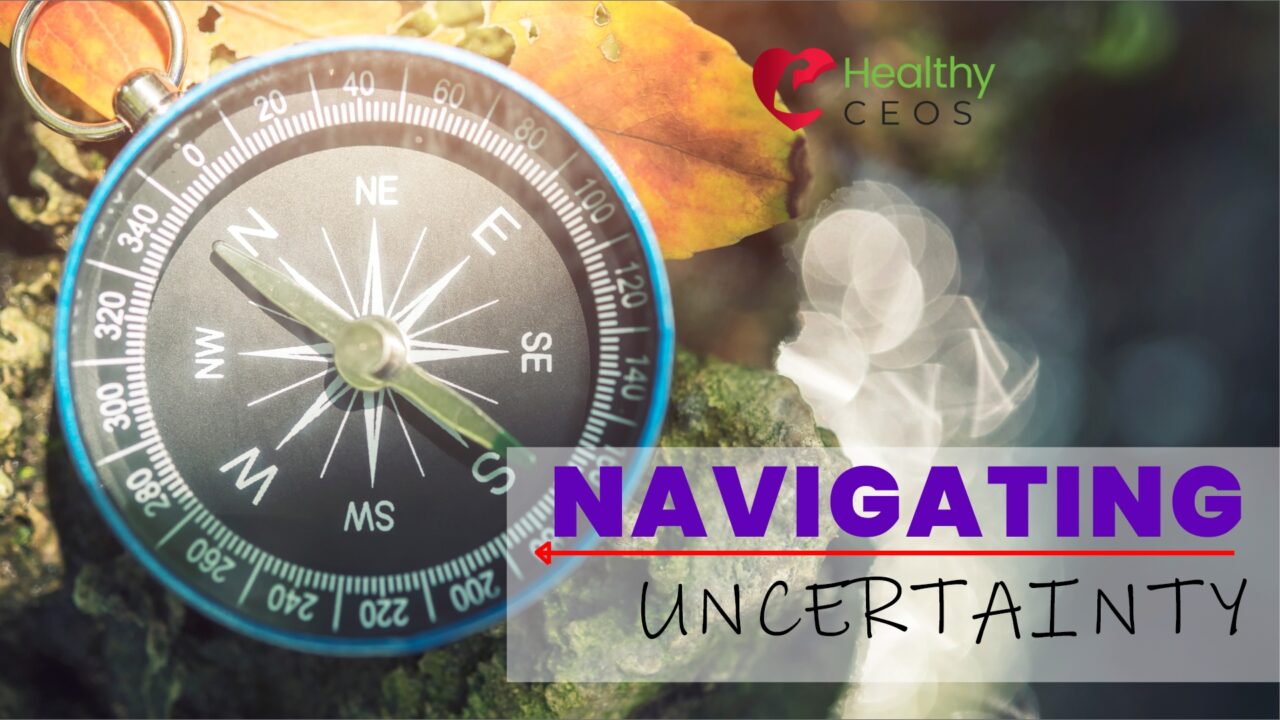In today’s fast-paced and ever-changing world, the ability to adapt and thrive amidst uncertainty is crucial. Leading through change requires a strong mindset, supported by nutrition, lifestyle choices, and movement. In this blog post, I will explore key strategies for adapting mentally and maintaining balance in the face of uncertainty. This involves taking a holistic approach to health and wellness, which includes nourishing your body, mind, and spirit. It also means having the courage to take risks and learning to accept and adapt to change. Finally, it’s important to stay connected with yourself and your environment, allowing yourself to be open to new opportunities and possibilities. Let’s dive in!
Mindset: The Foundation of Adaptation
Developing a resilient mindset is essential for navigating uncertain times. Embrace change as an opportunity for growth and view challenges as learning experiences. Practice mindfulness and self-reflection to stay present and focused. Cultivate a positive attitude and maintain a flexible perspective. Remember, your mindset sets the tone for how you respond to change. However, it is also important to be realistic about the situation. Uncertain times can be difficult and stressful, and it is not always possible to see the silver lining. It is okay to feel negative emotions, and it is important to give yourself time to process them. Be mindful of your limits and take care of yourself both mentally and physically.
Nutrition: Fuelling Your Resilience
Proper nutrition plays a pivotal role in supporting mental and emotional well-being during times of change. Opt for a balanced diet rich in whole foods, including fruits, vegetables, lean proteins, and healthy fats. Stay hydrated and limit the consumption of processed foods, sugary snacks, and excessive caffeine. Nourish your body with nutrients that support brain function and boost mood stability. Eating a nutritious diet is more than just a fleeting trend – it can have a lasting effect on your mental and emotional health, helping you cope with the uncertainties of life. For example, eating foods rich in omega-3 fatty acids like salmon or walnuts can help combat anxiety and depression, while a diet high in sugar and refined carbohydrates can worsen the symptoms. Adding foods like blueberries, which are high in antioxidants, can also help to improve memory and concentration. A study published in The American Journal of Clinical Nutrition found that individuals who had diets with a higher intake of fruits and vegetables were less likely to experience depression symptoms.
Lifestyle: Establishing Routines and Self-Care Practices
Maintaining a healthy lifestyle is essential for mental and emotional resilience. Create a daily routine that incorporates self-care activities such as meditation, journaling, or engaging in hobbies you enjoy. Prioritize quality sleep to enhance cognitive function and emotional stability. Set boundaries and practice effective time management to minimize stress and maintain a sense of control. Make sure to create an environment that facilitates relaxation and reduces distractions. Find ways to incorporate physical activity into your life, as this will help to increase energy levels, reduce stress, and improve overall well-being. Lastly, make sure to make time for yourself and do activities that bring you joy.
Mindfulness: Finding Calm Amidst Chaos
Practicing mindfulness is a powerful tool for navigating uncertainty. Take moments throughout the day to pause, breathe deeply, and center yourself. Engage in activities that promote mindfulness, such as yoga, walking in nature, or listening to calming music. By cultivating mindfulness, you can better manage stress, enhance focus, and make thoughtful decisions amidst change. Make a conscious effort to notice and accept your thoughts and feelings as they come, without judgement. This will help to bring clarity and enable you to make wiser choices in the face of uncertainty. Take a step back and assess the situation objectively. Ask yourself if it’s worth your energy to worry about something that is out of your control. Find ways to take action on the things you can control and trust that you will handle the rest when the time comes.
Movement: Energize Your Body and Mind
Physical activity is a crucial component of mental and emotional well-being. Engage in regular exercise to release tension, boost mood, and improve cognitive function. Choose activities that you enjoy, whether it’s going for a run, attending a dance class, or practicing martial arts. Incorporate movement breaks throughout your day to increase productivity and stimulate creativity. For example, a simple way to add physical activity to your day is to take the stairs instead of the elevator or parking further away from your destination. Exercise not only relieves tension, but also boosts your mood and sharpens your cognitive abilities. Make small changes in your lifestyle to add more physical activity into your day.
Resilience: Building Mental Strength
Building resilience is vital for navigating uncertainty successfully. Cultivate a growth mindset by embracing challenges as opportunities for personal and professional development. Surround yourself with a supportive network of friends, family, or mentors who can provide guidance and encouragement. Learn from setbacks and adapt your strategies accordingly. Remember, resilience is the key to bouncing back stronger after facing adversity. Take time for yourself. Make sure to take breaks and practice self-care to build your mental and emotional strength. Focus on the present and stay optimistic about the future. However, it is also important to have realistic expectations. Things will not always go according to plan, and you will face challenges and setbacks. It is important to be prepared for this and to have a support network in place to help you through tough times.
Self-Reflection: Learning and Adjusting
Periodically take time to reflect on your journey of adaptation. Assess what strategies have been effective and identify areas for improvement. Be willing to adjust your approach as needed, staying open-minded and adaptable. Embrace self-awareness and continually seek personal growth through self-reflection. Ask for feedback from peers and mentors for additional insight and clarity. Remain humble and take ownership of your actions. Celebrate your successes and learn from your mistakes.
Leading through change requires mental agility, nourishment, self-care, and physical movement. By adopting a resilient mindset, fuelling your body with proper nutrition, establishing healthy lifestyle practices, embracing mindfulness, engaging in regular physical activity, and building resilience, you can navigate uncertainty with grace and adaptability. Remember, change is inevitable, but your ability to embrace it can lead to personal and professional growth. Embrace the journey, stay flexible, and embrace the power of adaptation.
Shaun Tucker is the Founder of Healthy CEOs, a revolutionary health movement helping busy people improve their performance through the 5 foundations: Energy, Mindset, Lifestyle, Nutrition & Movement.
The Secret To Navigate Uncertainty: See Change As Opportunity, Not A Threat

